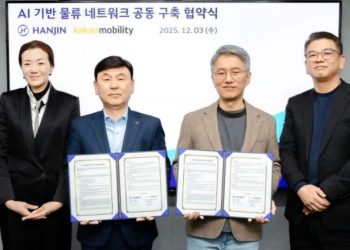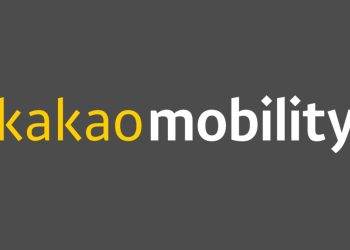South Korea’s Fair Trade Commission (FTC) has imposed a fine of 72.4 billion won ($54.9 million) on Kakao Mobility, the country’s largest taxi-hailing service provider, for allegedly abusing its market dominance. The regulator has also filed a complaint against Kakao Mobility with prosecutors, accusing the company of violating competition laws.
Kakao Mobility, which controls 96% of the taxi-hailing market, allegedly pressured competitors, including Uber’s joint venture in South Korea, to share real-time driver data.
According to the FTC, Kakao Mobility demanded that rival firms like Uber Taxi, Tada, Banban Taxi, and Macaron Taxi either sign data-sharing agreements or pay fees in exchange for access to Kakao’s ride-hailing app. The company allegedly threatened to block drivers affiliated with these competitors from receiving ride requests through its popular Kakao T platform if they did not comply.
According to the Korea Fair Trade Commission (FTC), Kakao Mobility allegedly blocked drivers from using its Kakao T ride-hailing app unless its rivals agreed to share confidential business information.
The FTC emphasized that the company’s actions hindered fair competition by leveraging its dominant market position to pressure competitors. “This was to address anticompetitive practices by a dominant platform unfairly using its market power to further expand into related sectors,” said FTC Chairperson Han Ki Jeong.
The antitrust body noted that Kakao Mobility violated the Monopoly Regulation and Fair Trade Act between May 2021 and September 2024, during which the company generated sales of 1.4 trillion won. By forcing competitors to share sensitive data, including drivers’ history, navigation routes, and franchise membership details, Kakao Mobility sought to strengthen its franchise service, Kakao T Blue. The FTC deemed this data “trade secrets” vital to competitors’ operations and service development.
Kakao Mobility defended its practices, arguing that the agreements aligned with government policies and aimed to improve customer convenience. The company expressed concerns that the fines would hurt its ability to compete with global platforms and may also stifle new ventures by smaller local mobility firms. Nevertheless, the FTC maintained that the penalty, representing 5% of Kakao Mobility’s sales, was necessary to deter further anticompetitive behavior.
The fine, amounting to 72.4 billion won, is the fourth-largest ever imposed for market dominance violations in South Korea. The FTC has also referred the case to prosecutors for further investigation.
In response, Kakao Mobility plans to challenge the decision in court, insisting that its policies were designed to streamline the ride-hailing process by reducing duplicate requests from multiple apps.
Kakao Mobility defended its actions, claiming that its partnerships with rival taxi-hailing services were to address issues such as multiple bookings on different platforms and cancellations. According to the company, the data shared with competitors was intended to reduce customer inconvenience, as many drivers were canceling Kakao T calls to opt for more profitable routes on other services. A Kakao Mobility official emphasized that the company did not use the data for its business purposes.
The company further clarified that the information mentioned by the FTC was similar to standard data obtained through navigation systems, such as pickup and drop-off locations, routes, and real-time GPS data. The only additional information collected was drivers’ franchise affiliations to avoid duplicate bookings. Kakao Mobility insisted that this data could not be considered valuable trade secrets and was purely for operational efficiency.
The company also raised concerns that the FTC’s penalties could harm domestic platforms’ competitiveness and that the decision to file criminal charges contradicts global trends in handling antitrust cases. Despite its defense, the company apologized for any concerns the sanction may have caused to customers.
Also Read:
- Government Inspects Naver, Calls for Better Disaster Management
- LG Energy Solution Targets Industry Leaders at Seoul Battery Tech Conference
- Kia Opens New Gwangmyeong EVO Plant for Electric Vehicles
- KT and Microsoft Partner for AI and Cloud Innovation in Saouth Korea
- Facing EV Demand Decline, SK On Announces Workforce Reduction Plans







